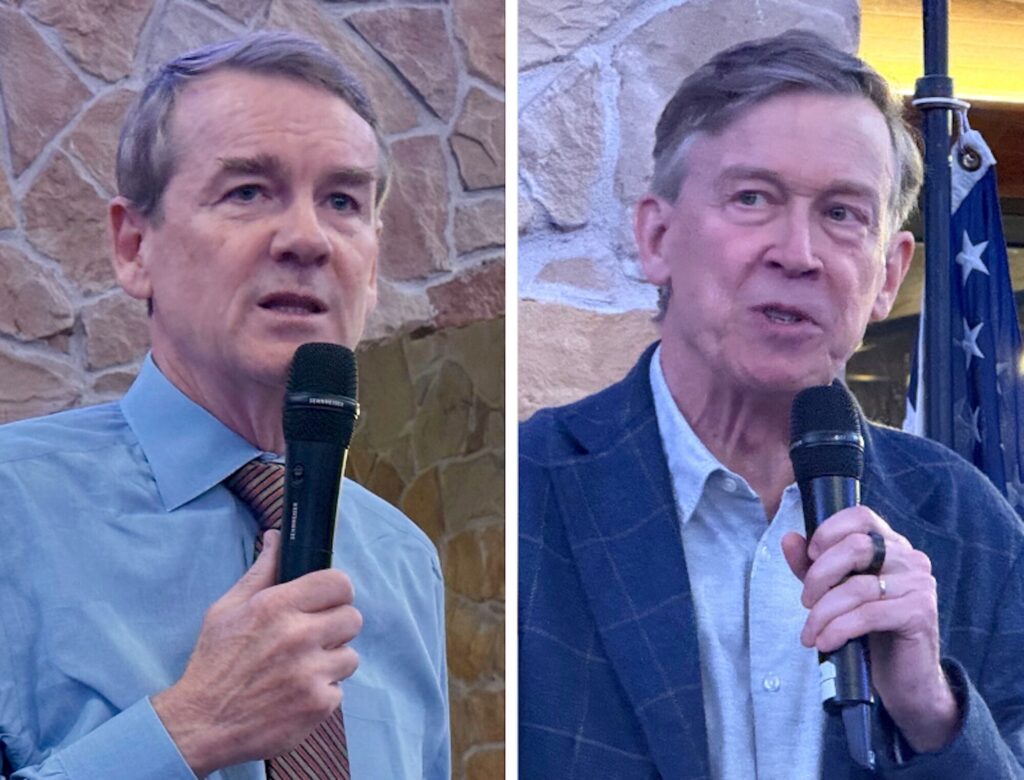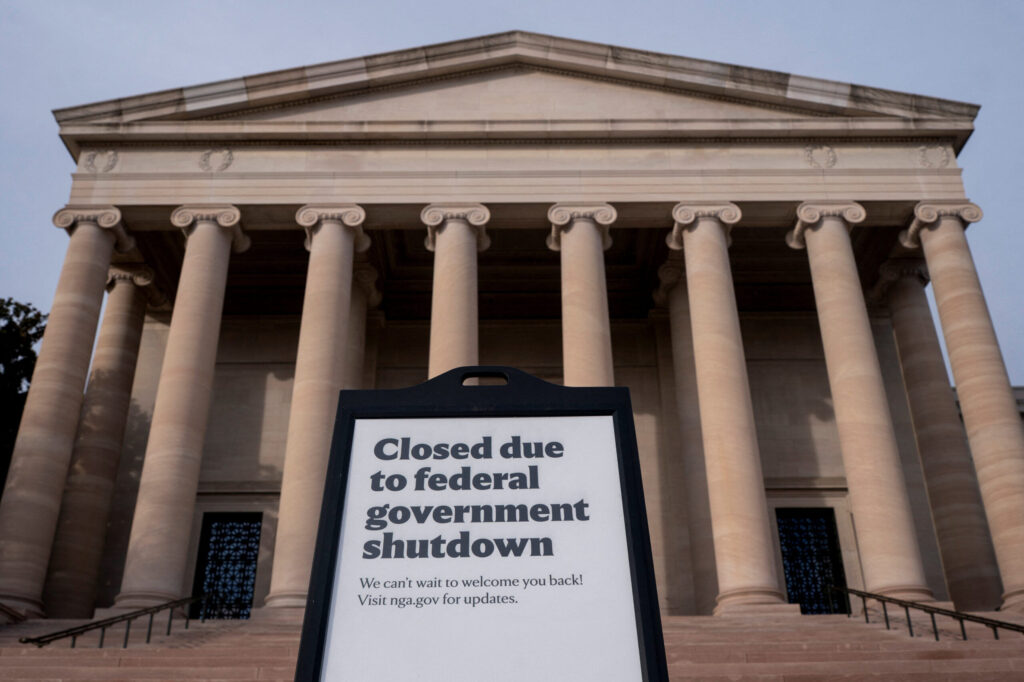Lawmakers consider road ahead in wake of inconclusive special session on pot tax
There’s no guarantee, but lawmakers on both sides say they’re hopeful they can come up with a way to let special districts again collect sales tax on recreational marijuana when the Colorado Legislature convenes in January.
The question vexed the General Assembly last week during the two-day special session called by Gov. John Hickenlooper to correct a drafting error in a sprawling tax bill passed earlier this year. If left in place, the legislative goof could cost nine special districts across the state $6.9 million over the course of a year, affecting the Denver area’s Regional Transportation District and Scientific and Cultural Facilities District, several smaller transportation districts, a housing district in Summit County and a hospital district in Montezuma County.
Democrats called it a simple matter of fixing a mistake, but most Republicans – egged on by prominent conservative pressure groups – argued the state’s constitution could require asking voters to reinstate the tax. After a GOP-controlled Senate committee voted down a pair of nearly identical Democratic bills, the Legislature adjourned and lawmakers started pointing fingers.
“We presented a constitutionally sound measure to fix a mistake that will impact Coloradans across the state,” said House Majority Leader K.C. Becker, a Boulder Democrat and the sponsor of one of the ill-fated bills. “Unfortunately, after we assembled for the special session, the other party chose to waste this opportunity to get this right. It’s very disappointing that they chose partisan politics over Coloradans who have repeatedly asked for these services.”
Hickenlooper expressed disappointment.
“Coloradans expect us to work together and solve problems. This week, we failed to do so,” he said in a statement, adding, “In the end, partisan politics overshadowed the clear intentions of Colorado voters. These tactics only divide us and fuel cynicism. We have been raised to own up to our mistakes and fix them. Most Coloradans believe these values should apply to everyone, especially to government.”
A day later, statehouse Republicans shook off the criticism and said they don’t expect the session’s bitterness to linger. Instead, they said they’re ready to get back to exploring how to resolve the issue “in a constitutional way” – an endeavor some contend was interrupted by Hickenlooper’s urgent call for a narrowly defined special session.
“What happened in September was unexpected,” Senate Majority Leader Chris Holbert, a Parker Republican, told Colorado Politics. “I took strong offense to members being assumed to be a yes vote on a bill that they had not seen.”
Quoting the Taxpayer Bill of Rights, Holbert allowed there are at least a few solutions Republicans don’t consider contrary to a passage requiring voter approval for “a tax policy change directly causing a net tax revenue gain to any district” – though the clearest path would be sending the question to voters, he said repeatedly.
While Democrats paraded court decisions going back decades they said bolstered their argument the Legislature could correct the error – including rulings by the Colorado Supreme Court- Holbert shook his head when the Senate convened Monday morning.
“I did not swear an oath to uphold the opinion of a court. I swore an oath to uphold the constitution,” he said.
State Rep. Chris Kennedy, a Lakewood Democrat, scoffed at Holbert’s reasoning in an email to supporters after the session adjourned.
“The oath I swore to uphold the constitution includes a respect for the separation of powers and the role of the judicial branch in interpreting the law,” he wrote. “Since Marbury v Madison in 1803, it has been the law of the land that the court’s interpretation of the law is the law, no matter what any individual’s ‘plain language’ interpretation may be. We can disagree with the law. We can try to change the law. But we can’t just ignore the law.”
Holbert was unmoved.
“It’s easy for me to say the simple reading of TABOR is put it on the ballot and get permission,” he told Colorado Politics. “Maybe we could authorize them to do elections earlier. But asking the voters is, for me, the easiest conceptual path out of this.”
“I think everything’s on the table at this point, but the downside of going to the ballot is the cost and the further delay of getting this done,” Kennedy said.
Officials with RTD and SCFD noted that a recent metro-wide election – when SCFD won voter approval to extend its 0.1-percent sales tax for a dozen years – cost around $1 million.
The governor’s office stressed the same point.
“The governor expects the Legislature will do its job and fix this problem as soon as possible in the next session,” Hickenlooper spokeswoman Jacque Montgomery told Colorado Politics. “The need and urgency to fix this error will only grow with time.”
Holbert acknowledged the special districts would probably have to wait until November 2018 to conduct an election, meaning at least 18 months of lost revenue. “Is that a good solution for the districts? Probably not from a funding perspective, but from a constitutional perspective, it’s perfect.”
But a vote of the people isn’t the only remedy that could pass constitutional muster, he said.
Because of the way the error slipped into statute – among a multitude of other changes, Senate Bill 267 exempted pot from the 2.9-percent state sales tax and instead put a voter-approved 15-percent marijuana tax in place, but another corner of state law only lets special districts collect sales tax on transactions subject to the state sales tax – some lawmakers have suggested simply removing the pot exemption from state sales tax, Holbert said.
“That might be constitutional,” he said. “That seems to be a solution that some people embrace. I don’t.” Holbert added that he didn’t see any reason to hit the marijuana industry and its customers with a tax hike to fix the Legislature’s mistake.
Jesse Mallory, state director of the conservative Americans for Prosperity organization and a former chief of staff for the Senate Republicans, sounded skeptical that his group would bless anything other than sending the question to the ballot.
“Everything that we’ve seen needs to go to the people for a vote, and we stand by that,” he told Colorado Politics. “Any sort of fix or any sort of tax would have to go to a vote.”
AFP claimed credit for holding some Republicans’ feet to the fire for the session, pointing to hundreds of calls and emails from its Colorado members demanding lawmakers treat the matter as a tax policy change subject to TABOR.
“It’s going to be an issue that we closely monitor,” he added
Another question that arose during the session concerns making the special district whole – backfilling their lost tax revenue – once their ability to assess the sales tax is addressed.
State Sen. Ray Scott, a Grand Junction Republican, floated the notion of using proceeds from a recent state settlement with Volkswagen over its vehicle emission cheating to pay back RTD and the other transit authorities, although Hickenlooper told The Denver Post Wednesday such a move wouldn’t be legal.
Holbert said he was concerned about proposals to use other state funds to reimburse the districts.
“Most of Colorado doesn’t live in the RTD or the SCFD,” he said. “I recognize that the state Legislature caused this problem, but most people in Colorado – geographically at least – are outside the affected districts. Using statewide tax dollars to solve this problem, I think, is problematic and many constituents would object to that.”
Senate Minority Leader Lucia Guzman, a Denver Democrat, said she anticipates solutions might be more apparent when the special session’s dust and acrimony has settled.
“I plan to check in in a few weeks and see what direction we can go in,” she told Colorado Politics. “I hope some legislators will get together and see if there’s a fix though legislation beginning in January. Let’s talk about what the possibility might be and see if we can move forward.”











